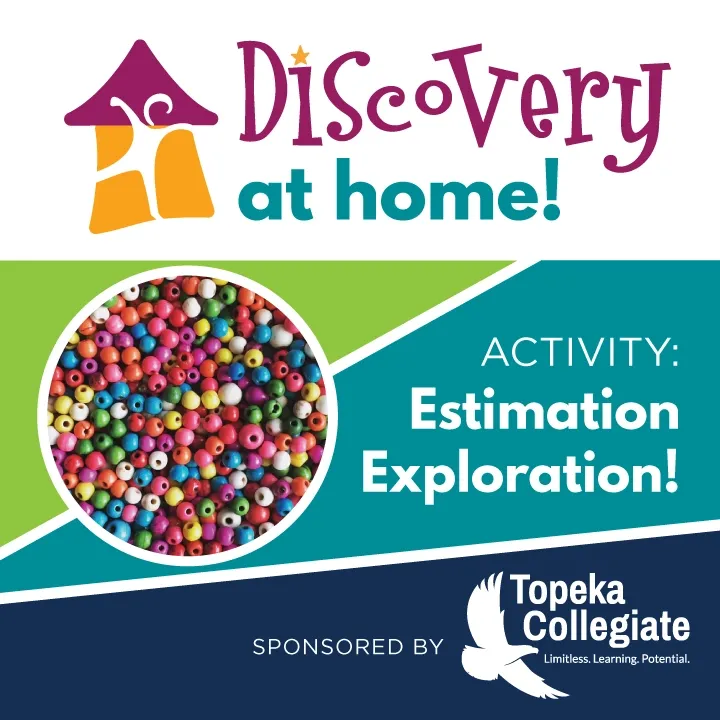How many? How much?
Explore Estimation with Caitlin Luttjohann, Director of STEAM Education at the Kansas Children’s Discovery Center. Estimation skills are critical for kids as they learn math and navigate everyday problems! This activity is generously supported by our friends at Topeka Collegiate School.

What you need:
- Containers full of multiple pieces of the same thing.
Directions:
- First, find (or create!) a container that has multiples of the same thing.
- Think about how much space each item takes up.
- Think about how many pieces you can see.
- Estimate how many pieces were in the container.
- Count the pieces and see how close you were!
- Find another container that has multiples of the same thing, and estimate again!
How to expand it:
- Think about how long it would take to get from one room in your house to another room. Think about walking vs running. Decide if you will walk, run, roll, skip, etc., and then estimate the time it takes to get from the starting point to a destination in your house. Have a grownup keep track of the time it takes.
- Think about a chore, like making the bed. What steps do you have to take to make the bed? How long do each of those steps take? How long would it take to go through all the steps in making the bed? Estimate your time, then have your grownup keep track of the time it takes you to complete the task.
What kids learn:
- Practicing estimation skills is important, because those skills are often used in daily life. For example, when people go grocery shopping, they have a budget to follow. They estimate how much each item costs as it is placed in the cart.
- Be able to determine if an answer is reasonable. For example, if a child is asked to multiply 76 x 132 and they answer 732,494. We want them to question that answer and determine that they should have an answer around 7,000 because 70 x 100 equals 7,000.
- Children will learn to be able to estimate beyond math as well. For example, when traveling, estimating the time it takes to arrive somewhere is an important skill.
- Children will recognize that specific words and phrases such as “about, close, a little more, a little less” and more are linked to estimating.
Vocabulary:
- Precision (in STEAM). When more than one measurement is close to each other. If you throw three darts at a dart board and they all stick to the bottom of the board close together, it is precision and not accuracy.
- Accuracy (in STEAM). When a measurement is close to the correct number or standard. If you throw three darts at a dart board and they all stick to the bullseye, it is precision and accuracy.